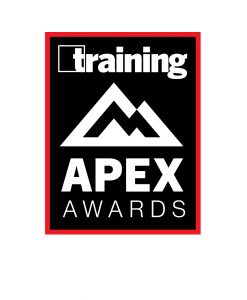Johns Hopkins Medicine: Patient Access’ Practical Application Training (PAT) program integrates new Patient Access staff members into the Call Center by giving them the opportunity to learn and apply key concepts of Customer Service, Epic (the electronic medical record), and Insurance. Most importantly, by the end of the course, agents are knowledgeable with regards to the Call Center’s “Best Practices.”
Program Details
The program aims to:
- Incorporate and build upon skills acquired in Epic and Insurance training
- Evaluate skill and behavior competencies to ensure success
- Develop and simplify workflow processes
- Ensure new hire understanding of:
- Epic system navigation
- Avaya Agent phone system
- Insurance policies and plan selection
- Call-handling best practices
- Scheduling protocols
- Critical thinking skills
- Appropriate use of empathy, tone, and professionalism
- Handling of challenging callers
Program components include:
- Introduction to the Quality Monitoring Tool used to score agents
- Observing and analyzing pre-recorded live calls
- HIPAA compliance
- Applying empathy and tone to enhance the patient experience and navigate challenging conversations
- Avaya Agent phone system live demonstration
- Hands-on navigational practice in a simulated Epic environment
- Critical thinking skills to determine insurance participation
- Role-play to simulate varying real-world examples of patient calls
- Use of virtual guides, manuals, and tip sheets
- Gamification (e.g., virtual scavenger hunts, Kahoot!, etc.) used to aid learning
- Icebreakers to increase engagement
The week-long class ties all the tasks together, along with the soft skills needed to offer patients a world-class patient experience. This allows new hires to gain confidence within a “safe haven” in which they practice in a simulated environment.
Immediately after class, the class facilitator sends an evaluation of the new hire’s performance to their manager so their skills can be appropriately reinforced. The new hire then is paired up with a peer mentor within their department. This can be either an experienced coworker or a supervisor who observes the new hire as they take calls to guide and give feedback and reinforce skills learned in the PAT program.
New hires also are assigned to a Quality Partner (QP) in the Quality Assurance program. These QPs meet monthly with the agents to review a sampling of their calls and discuss strengths and opportunities for improvement. The new hire also receives a 90-day evaluation from their manager in which their progress is reviewed. Prior to the 90-day point, management offers additional support and training to any agent still struggling with the concepts taught in class. (For example, agents may retake classes or get individual guidance from their assigned QP.)
After the six-month point, the agent continues to have an ongoing relationship with their QP throughout their career as a call center agent. Each agent has five calls audited per month based on parameters learned in the initial PAT class. They receive this feedback in a Monthly Feedback Report, which contains their scorecard and an audio recording of the audited calls. The agent also meets with their QP monthly to review these calls and to continuously reinforce the principles learned in PAT.
Results
Staff are measured on the components learned in PAT by the Quality Partners using a Quality Monitoring Tool. The goal is a score of 80 percent or higher. The average quality score in fiscal year 2023 for all departments was 88 percent, with all departments scoring at least 80 percent. A total of 14,614 calls were evaluated in FY’23, more than 3,000 calls than evaluated the year before.
The organization aims for a quality experience in which calls are answered within a 30-second timeframe the majority of the time. For FY’23, the result was 25 percent higher than in FY’22.





